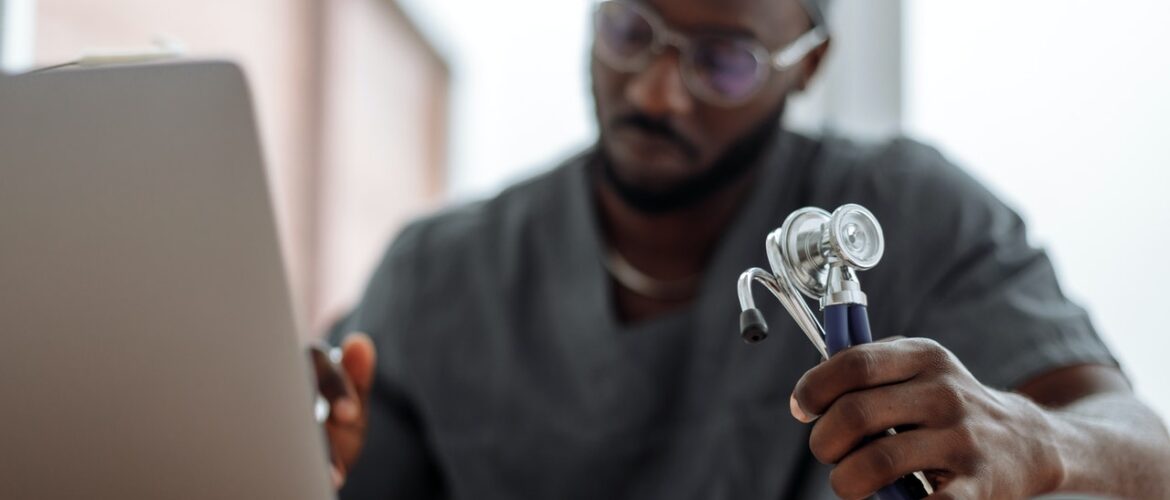Should GP video consultations continue on an ongoing basis?
For much of the past year, because of the pandemic, many GP practices and other NHS practitioners have been carrying out non-essential consultations via video calls. This greatly reduces the risk of viral transmission for both the patient and healthcare worker. So, the question has been asked: should GP video consultations continue on an ongoing basis?
Of course, there are and will always be appointments that need to be carried out face-to-face. But for many, avoiding long waiting times and risking their health to see their GP will be a welcome relief. So, what factors need to be considered before a decision is made on this?
Use of technology
For younger generations, the use of technology is a seemingly inseparable facet of daily life. But for many people of an older generation, getting to grips with technology can be somewhat challenging, particularly if they have no one to help them.
Therefore, it would make sense to keep face-to-face appointments for those that do not have easy access to suitable technology or those who prefer to see an expert in person. Similarly, of course, this principle should apply to anyone who doesn’t have access to the necessary technology due to issues of welfare, ability, and/or poverty. Face-to-face consultations must always be an option because of these reasons, but should that mean that all appointments must be done in person?
Convenience
Many patients would be greatly accepting of a decision to make GP video consultations a permanent option. It seems such a logical progression as it will make it so much easy for people to speak with NHS doctors, nurses, and consultants. Without doubt, for those with minor issues and more general concerns, a video consultation may be much more convenient. Video calling GP’s is much less time and energy consuming than travelling to a local surgery and sitting in a waiting room for who knows how long.
Risk of miscommunication
For all its benefits, having consultations online does increase the risk of miscommunication or wrong diagnosis. This is dangerous for both parties because it could negatively impact patient health, risking a case of medical negligence which can lead to professional repercussions.
However, as with the other factors considered, cases where matters of health are more serious, face-to-face appointments should always be conducted in-person to ensure the wellbeing of the patient and to allow a GP or nurse to do their job competently. And, in many cases, GPs may insist on a visit to properly investigate health issues before prescribing any medication. This is essential as overprescribing medications such as opioids is a real issue in the UK.
Overall, it makes sense that both options remain going forward. Video consultations will greatly benefit some members of society and could save precious time and resources for the NHS. But others in society will always need the option of face-to-face appointments, either because of the severity of their health concerns or their lack of access to adequate technology.
Do you think GP video consultations should continue? If you have already used such a service, it would be great to know how effective and convenient you found the process. Do please leave your comments below.


1 Comment
As a GP, I have found only 2 people since March who wanted a video consultation. From both sides, a telephone appointment is quicker, easier, and less intimidating! Few people realise that most of the diagnosis and management plan are made from the history-taking, and we are highly skilled at this.
It is certainly much more convenient on both sides to avoid the travel involved in a face to face consultation, and it has been much better for my parents’ generation in care homes and nursing homes to have outpatients appointments with oncology and orthopaedics by telephone where possible.
I have been proud and impressed with how we in the NHS have all pivoted to respond to the current situation.
For my private functional medicine menopause practice, I have always preferred the video consultations that I do via Zoom. The ability to connect is brilliant – as with my networking groups, I really feel as if we are in the same room. There are the added benefits of being able to share the screen when going through results, and being able to record the consultation so that the patient/ client can watch again later.
For now, the infection risk is such that, in either scenario, a face to face consultation needs to be a last resort, and kept to a minimum of time – so don’t be put off if your GP rings you first to establish a better history – even if you are in your car in the car park! We have only your safety at heart…